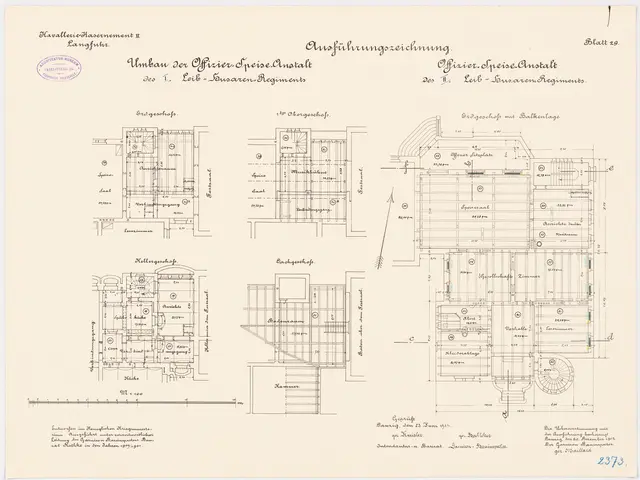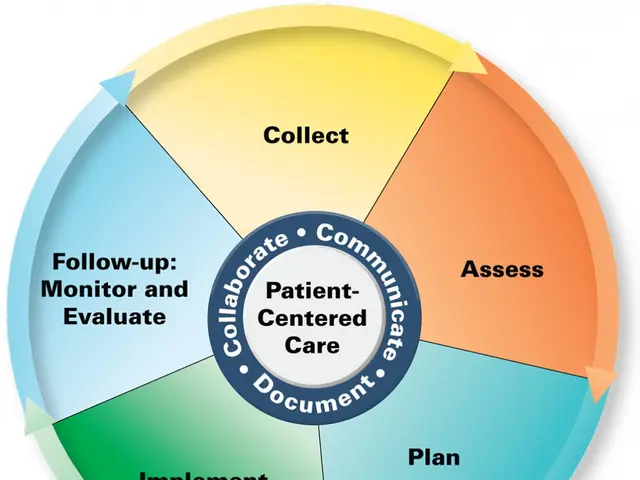Evening Parliamentary Meeting of the Plastic Industries' Collective
The Plastics Processing Industry Association (GKV) hosted its annual Parliamentary Evening on July 8, 2025, at the German Parliamentary Society, bringing together industry leaders, politicians, and over 100 guests to discuss new growth opportunities and challenges facing German plastics processors. Journalist Anke Plättner moderated the discussion, which included GKV President Helen Fürst, Michael Thews MP (SPD), Julian Joswig MP (Alliance 90/The Greens), and Christian Bonten.
The discussion centred on the dynamic landscape that German plastics processors find themselves in, where innovation and sustainability offer significant growth potential but also present economic, regulatory, and structural challenges.
One of the key growth opportunities highlighted was the integration of the circular economy. The GKV is actively promoting this approach, showcasing efforts to elevate industry talent, innovate in recycling, material efficiency, and sustainable production practices. This push towards sustainability aligns with Germany's national goal of climate neutrality by 2045, which includes investments in green hydrogen, renewable energy, and circular economy initiatives that attract global investment and drive efficiency.
Germany’s plastics processors also benefit from the country’s strong research and development infrastructure, a skilled workforce, and a reputation for high-quality machinery. These factors position German firms as leaders in advanced materials and sustainable solutions, which are increasingly in demand globally.
Increasing digitalization and global demand for premium industrial products are also positive trends for the sector, supported by EU policies that foster innovation and competitiveness. Participation in international trade fairs and conferences, such as K 2025, offers additional platforms for growth and collaboration.
However, the discussion also touched upon the challenges facing the industry. Despite an overall improvement in German business confidence, plastics processors remain more pessimistic about their outlook. This pessimism stems from sector-specific headwinds such as regulatory pressures, high energy costs, and economic uncertainty.
The drive for sustainability, while an opportunity, also presents challenges in terms of compliance costs, the need for rapid technological adaptation, and potential disruptions to traditional business models. Market consolidation and M&A activity are also shaping the industry landscape, creating both opportunities and challenges for remaining players.
GKV President Helen Fürst expressed concern about the bureaucratic and regulatory challenges faced by medium-sized enterprises in the plastics processing industry. She called for a mindset shift towards greater trust in the responsibility of businesses, urging optimism and a focus on collaboration to navigate these challenges.
The event concluded with a networking session, providing an opportunity for attendees to engage in further discussions and forge new partnerships. As the plastics processing industry continues to evolve, events like these will undoubtedly play a crucial role in shaping its future.
- The circular economy integration is one of the key growth opportunities for the German plastics processing industry, with the GKV actively promoting this approach to elevate industry talent, innovate in recycling, material efficiency, and sustainable production practices.
- The discussion outlined the dynamic landscape of the plastics processing industry, where innovation and sustainability offer growth potential, but also present economic, regulatory, and structural challenges.
- Germany's strong research and development infrastructure, skilled workforce, and reputation for high-quality machinery position German firms as global leaders in advanced materials and sustainable solutions.
- Regulatory pressures, high energy costs, and economic uncertainty are sector-specific headwinds that make plastics processors more pessimistic about their outlook, and the drive for sustainability, while an opportunity, also presents challenges in terms of compliance costs, technological adaptation, and potential disruptions to traditional business models.








